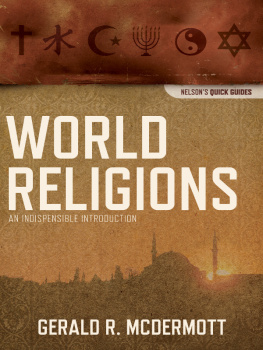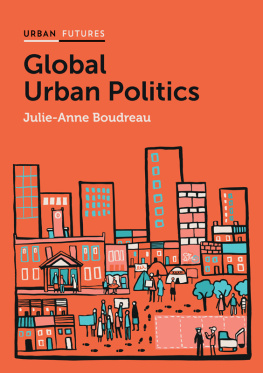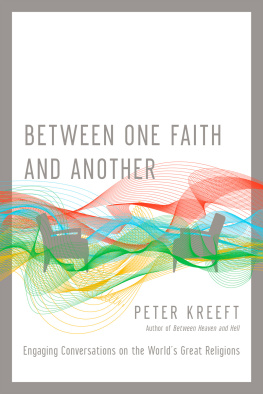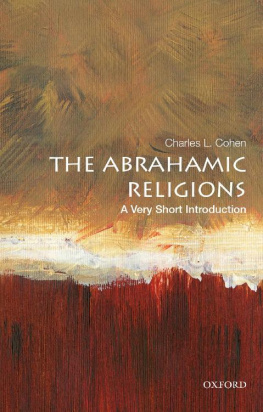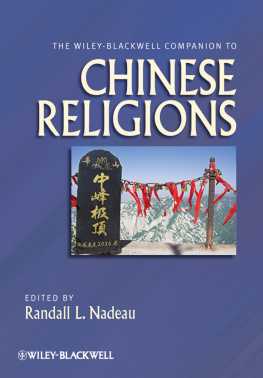Culture and Politics / Politics and Culture
General Editors:
Laura Nader, University of California, Berkeley
Rik Pinxten, Ghent University, Belgium
Ellen Preckler, Ghent University, Belgium
Cultural Identity, whether real or imagined, has become an important marker of societal differentiation. This series focuses on the interplay of politics and culture and offers a forum for analysis and discussion of such key issues as multiculturalism, racism and human rights.
Volume 1
Europe's New Racism: Causes, Manifestations and Solutions
Edited by The Evens Foundation
Volume 2
Culture and Politics: Identity and Conflict in a Multicultural World
Edited by Rik Pinxten, Ghislain Verstraete and Chia Longman
Volume 3
Racism in Metropolitan Areas
Edited by Rik Pinxten and Ellen Preckler
Volume 4
When God Comes to Town: Religious Traditions in Urban Contexts
Edited by Rik Pinxten and Lisa Dikomitis
Volume 5
The Mirage of China: Anti-Humanism, Narcissism, and Corporeality of the Contemporary World
By Xin Liu
WHEN GOD COMES TO TOWN
Religious Traditions in Urban Contexts
Edited by
Rik Pinxten & Lisa Dikomitis
First published in 2009 by
Berghahn Books
www.BerghahnBooks.com
2009, 2012 Rik Pinxten and Lisa Dikomitis
First paperback edition published in 2012
All rights reserved.
Except for the quotation of short passages for the purposes of criticism and review, no part of this book may be reproduced in any form or by any means, electronic or mechanical, including photocopying, recording, or any information storage and retrieval system now known or to be invented, without the written permission of the publisher.
Library of Congress Cataloging-in-Publication Data
When God comes to town : religious traditions in urban contexts / edited by Rik Pinxten and Lisa Dikomitis.
p. cm. -- (Culture and politics/politics and culture series ; v. 4)
Includes bibliographical references and index.
ISBN 978-1-84545-554-5 (hbk.)--ISBN 978-0-85745-807-0 (pbk.)
1. Religion and sociology. 2. Cities and towns--Religious aspects. I. Pinxten, Rik. II. Dikomitis, Lisa.
BL60.W49 2009
200.9173'2--dc22
2008053757
British Library Cataloguing in Publication Data
A catalogue record for this book is available from the British Library.
Printed in the United States on acid-free paper.
ISBN: 978-0-85745-807-0 (paperback) ISBN: 978-0-85745-823-0 (ebook)
INTRODUCTION: WHEN GOD COMES TO TOWN
Rik Pinxten and Lisa Dikomitis
This volume in the series Culture and Politics investigates the way the city context and increasing urbanisation influence the styles of conversion, the social processes and the panorama of religions and life stance groups today. The book poses a deep philosophical problem: how does the transfer of recipes on the meaning of life change with the global urbanisation of living conditions? Rather than philosophical generalisations, our approach is based on ethnographic and historical detail: how do people cope with this shift at a grassroots level? Examples from the Mediterranean area and elsewhere are elaborated by an interdisciplinary group of historians, scholars and anthropologists.
Humans Will Be Urbanites
Around 1800 a rough 3 per cent of the human population lived in urban areas. The prognosis is that by 2030 some 70 per cent of humankind will be urbanites (Castells 2002). Contemporary urban areas are not (or not only) the well ordered historical cities we know from the old world, but primarily the rapidly expanding and semi-ordered complexes such as Sao Paolo in Brazil, Cairo in Egypt or Kinshasa in Congo.
Traditional religions offered perspectives on life, explanations on customs and the meaning of life and ritual practices in society within the constraints of small groups (bands, clans, etc.) or villages. Even the ancient Greek and Roman or the early Christian cities Augustine was thinking about never held more than tens of thousands of citizens. We wonder in this book about the possible appeal of these old religious traditions in the urban predicament we are witnessing now. What could be the impact of global urbanisation on learning practices and on the contents of what is learnt and transferred on the meaning of life, on what ritual to perform and on belief and faith? Our presupposition is that the traditional religions we know about (including the religions of the book: Judaism, Christianity and Islam) used two foci of relatedness in order to appeal to their followers. On the one hand, some religious traditions offer a common ancestry or a lineage of descent to the followers: we are all children of Abraham (for Judaism, and in a slightly different way for Christianity and Islam), or we are all Navajo because that is the way of the People (Din) since the time of emergence (Wyman 1970). On the other hand, the peer group can be emphasised to represent the basic social reference group: through face-to-face relationships of a deep and continuous nature followers are reared as religious persons. A parish, a small synagogue school or a particular praying group are cases in point. Although both these references will probably continue to be relevant, they seem to be losing power in the context of a vast and anonymous context of the big city. That is to say, it becomes increasingly difficult to uphold that the insights gained from the peer level experiences will still be relevant for the questions of sense and meaning of life in the new conditions. In the new context, a great variety of religious traditions will be encountered and the historical uniformity of the nation-state (one religion, one language, one nation) will be hard to keep up: especially the religions of the book seem to confront this issue in their attempts to redefine their relationship with a state or a government (see Drweski, this volume). Another shift might be occasioned by the mere numbers of the new context, yielding a change in strategy to reach and serve the following by drawing on new media techniques or looking for mass demonstrations to supplement or substitute for the peer relationships. Some denominations (like the Evangelical Church, but also the Roman Catholic Church) explore this road. Our point of departure in this volume is that the urbanisation trends should be scrutinised as possible causes, or at the very least important factors of impact, to understand the evolution on the ground.
These are the macro questions addressed in this book. They were the focus of an interdisciplinary symposium Making Sense in the City (December 2006), which we organised on the topic, by drawing in and confronting the competences on these issues from academics, artists and specialists from life stance organisations. In this volume we gathered some of the expertise we saw in this field that has special relevance. The focus here is on the changes in existing religious traditions, when they try to cope with a rather sudden shift towards urban life. That yields, typically for anthropologists and historians we believe, a microlevel analysis.


